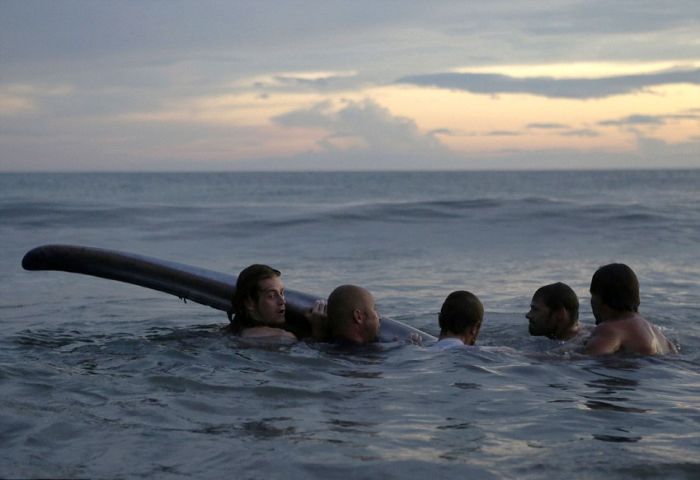|
|
Saving A Whale, Cetacean Stranding, Popoyo Beach, Tola Municipality, Rivas Department, Nicaragua
|
Body size does not normally affect the frequency, but both the animals' normal habitat and social organization do appear to influence their chances of coming ashore in large numbers. Odontocetes that normally inhabit deep waters and live in large, tightly knit groups are the most susceptible. They include the sperm whale, a few species of pilot and killer whales, a few beaked whales and some oceanic dolphins.
Solitary species naturally do not strand en masse. Cetaceans that spend most of their time in shallow, coastal waters almost never mass strand.
|
|









